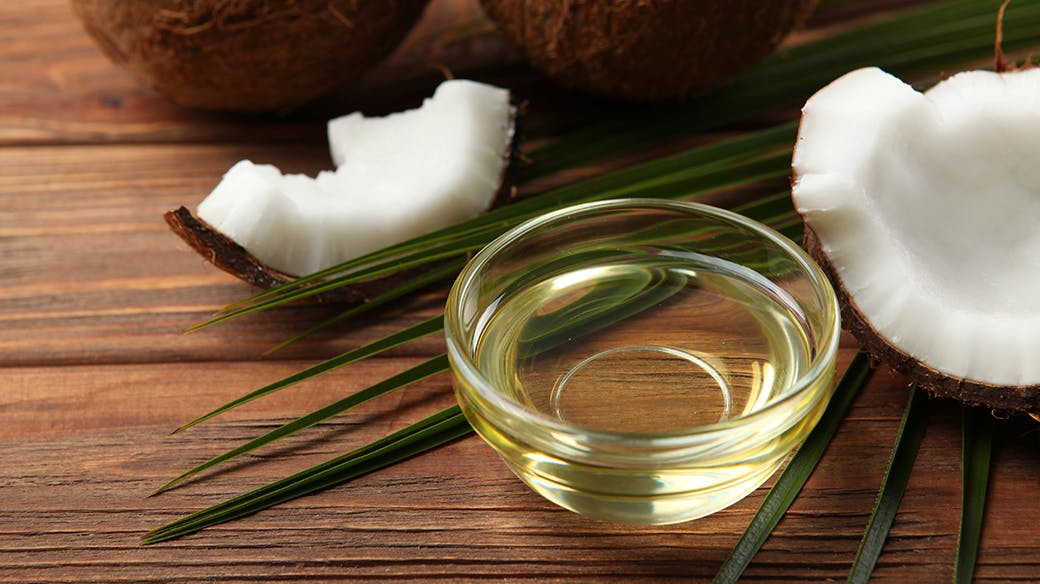What is Coconut Oil Made From?
Coconut oil is extracted from the flesh of coconuts, primarily composed of medium-chain fatty acids like Lauric Acid. When consumed, Lauric Acid is quickly absorbed by the body through the small intestine, making it readily available for immediate use by the liver. This differs from other types of fatty acids found in plant oils or animal fats, which tend to accumulate in the body after consumption.
How Many Types of Coconut Oils Are There and How Do They Differ?
Coconut oil is divided into two main types based on the extraction process: Virgin Coconut Oil and Refined Coconut Oil. Each type is suitable for different uses:
· Virgin Coconut Oil, also known as cold-pressed coconut oil, is extracted physically from fresh coconut flesh. It is clear, odorless, rich in nutrients and vitamins, perfect for skincare and nourishment.
· Refined Coconut Oil undergoes chemical and heat processing to enhance qualities like color and odor. It withstands high temperatures well, making it ideal for frying and cooking.
Benefits of Coconut Oil
Due to its numerous properties, coconut oil offers advantages for both health and beauty.
· Health Benefits of Using Coconut Oil:
o Weight Management: Stimulates efficient metabolism and aids in reducing fat accumulation.
o Digestive Health: Supports nutrient absorption and helps prevent digestive issues like constipation and inflammation.
o Heart Health: Increases good cholesterol levels in the blood, reducing the risk of cardiovascular diseases.
o Brain Health: Provides a good energy source for the brain, potentially helping to prevent conditions like Alzheimer's disease.
· External Uses of Coconut Oil:
o Skincare: Moisturizes and soothes skin, reducing inflammation and bacterial infections.
o Oral Care: Helps maintain oral health by combating bacteria and reducing risks of gum disease and plaque.
o Hair Care: Nourishes hair and protects against damage, maintaining scalp health.
o UV Protection: Applying coconut oil on the skin may provide up to 20% UV protection from the sun.
Precautions for Using Coconut Oil
Due to its high fat content, excessive consumption of coconut oil may raise cholesterol levels. Individuals with high blood cholesterol should consume it cautiously, ideally limiting intake to 1 tablespoon per day or 2-3 times per week to reduce the risk of heart and vascular diseases.
Choosing high quality Coconut Oil: Key Considerations
Selecting high-quality coconut oil involves evaluating three main factors:
1. Appearance: Good coconut oil should be clear, without excessive yellowing or cloudiness.
2. Odor: It should have a mild coconut scent, not rancid or sour.
3. Standards: Look for products certified under manufacturing standards like GMP and HACCP, ensuring quality and safety.
In conclusion, the benefits of coconut oil are extensive for both health and beauty. However, it should be consumed and used wisely to mitigate potential risks. For more health articles, visit https://www.krungthai-axa.co.th/th/health-advisories
References:
· HelloKhunmor
https://bit.ly/3WcNlxF
· Pobpad
https://bit.ly/3JfZ5rk
· Healthline
https://bit.ly/3VPt1Cb
· Gotoknow
https://bit.ly/3VUT1Mh


